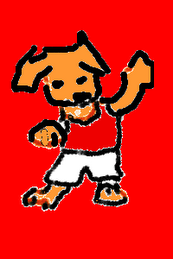| Summary of 2011 Szondi Test Study Gouup The Ego Stages as reflected in the Szondi Test. Our definition of the Ego for the infant is the developed awareness of the difference between one self and others. as infancy changes into childhood, along with all the features of growth, metabolic, neurological, hormonal, there is evidence of some awareness of fundamental needs and a searching to satisfy them. This is the basis for the belief there is an early 'pre verbal' or 'primitive' Ego Within a few months perhaps as the developing brain readies for later developments of thinking and language (the later) unique to mankind. A system of impulse handing also develops concurrently. This early Ego appears to expand its controlling and adapting powers exponentially as language and basic thinking skills are acquired. At the same time the first 'primary' relations to significant others. partially remain and are not automatically over thrown and are carried over into the sequential development stages. To set these unfolding stages into perspective for us Susan Deri translated the Szondi Test signs belonging to the Ego sphere (Sch) and putting aside the issues belonging to the three Szondi Vectors Sexual (S), Paroxysmal/Affect (P) and Contact/Mood (C). These three Vectors of course generate the needs and strivings a particular Ego setting has to handle. Different Ego patterns have different modes of doing their moderation work, Later in clinical examples our experimental test findings will reflect the fact that an adult under sufficient pressure or stress may regress to the use of Ego patterns belonging to his childhood. |
For us as students of human nature, we ask what is it beyond this theoretical passage of the Ego that will address our desire to understand the larger issues and concerns in respect to ultimate behavior? What can we by this Szondi Test that offers insight in those humans who develop atypical or outright abnormal forms of existance?
More is under preparation for more detailed exploration of the SCH/Ego Vector. |
| Back to home page--- [X] | Please explore pages and posts, | Top right, as there is much more. |



